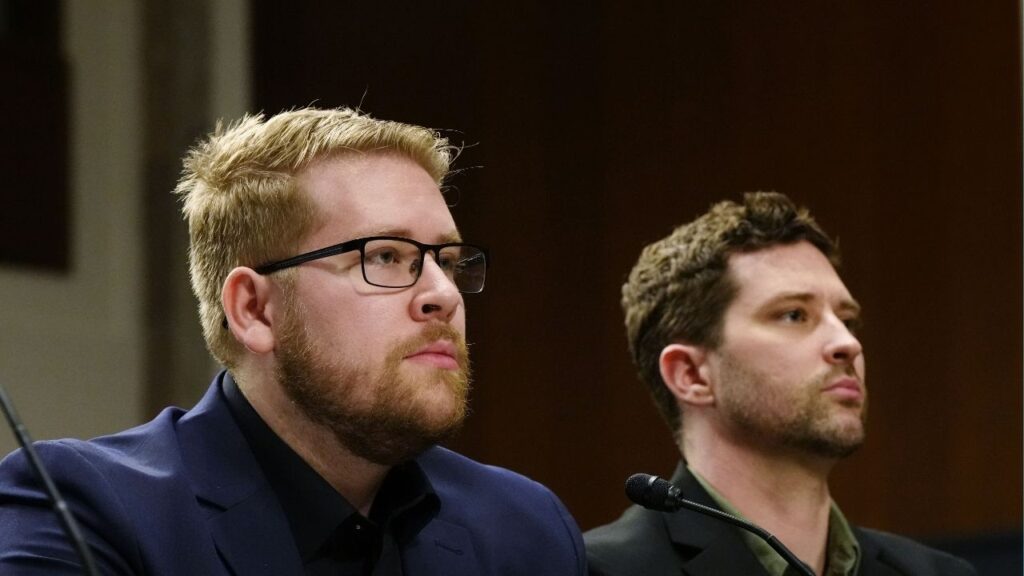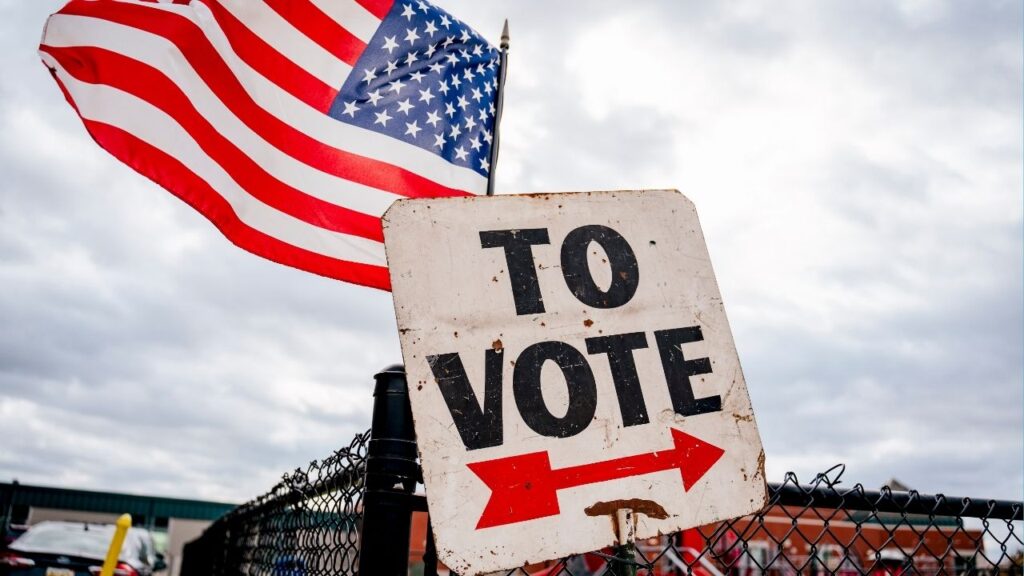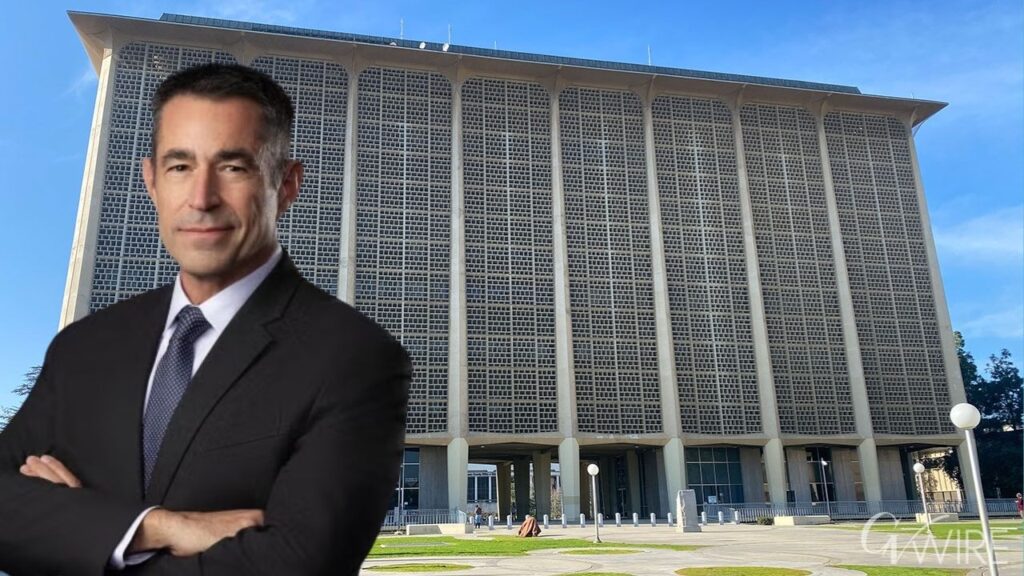Unusual electoral situation forces California taxpayers to fund special election after Rep. Fong wins both Assembly and Congressional seats. (AP/Francis Chung)

- New state law AB 1784 now prevents candidates from appearing on same ballot for multiple offices to avoid future electoral confusion.
- Special election could cost Kern and Tulare County taxpayers upwards of $1.2 million to fill the unwanted Assembly seat victory.
- Court rulings highlighted legislative gap in California election code, leading to unprecedented dual-race scenario on single ballot.
Share
|
Getting your Trinity Audio player ready...
|
San Joaquin Valley Republican Vince Fong was on the ballot this fall for an Assembly race, but he didn’t want to win it. After all, he left that job for Congress earlier this year, and he planned to stay in the nation’s capital.

Ryan Sabalow
CalMatters
He even went so far as to endorse the Bakersfield city councilmember who was listed as running against him on the November ballot.
But voters chose Fong anyway for the Assembly. They chose him again for Congress, too, since he was listed on the same ballot twice. And they did so overwhelmingly. By last count, Fong had more than 33,000 votes over fellow Republican Ken Weir for the Assembly seat.
Now, since Fong “won” his Assembly race, Kern and Tulare County taxpayers in Assembly District 32 will end up paying hundreds of thousands of dollars for a special election to fill the seat that Fong doesn’t want any more.
The good news for California voters and taxpayers is that a new law, passed this year in response to Fong’s ballot conundrum, will hopefully prevent future confusion over a candidate appearing on the same ballot for two different races.
In September, Gov. Gavin Newsom signed Assembly Bill 1784. The law prevents a candidate from appearing on the same ballot for simultaneous races. The legislation came in response to judges telling California election officials that Fong had to stay on the ballot for both races.
Related Story: Boudreaux Drops Out of November Congressional Race Against Fong
McCarthy’s Resignation Set Stage for Court Fight
The confusion arose last winter when U.S. Rep. Kevin McCarthy, a Republican from Bakersfield and the former House speaker, resigned after a brutal battle within the GOP caucus. Fong, a longtime McCarthy acolyte who once served as his district director, announced he was running for his mentor’s seat with McCarthy’s endorsement.
But by that point, Fong, who’d been an Assemblymember since 2016, had already filed papers declaring his Assembly candidacy for the March primary.
Democratic California Secretary of State Shirley Weber argued that elections officials had long maintained that the state’s election code prohibited a candidate from running in two races simultaneously. Weber moved to block Fong from appearing on the ballot for the congressional seat.
Fong challenged Weber in Sacramento Superior Court. Judge Shelleyanne Chang overruled Weber, despite noting “it may result in voter confusion and the disenfranchisement of voters if Fong is ultimately elected for both offices but does not retain one.”
“Moreover, it somewhat defies common sense to find the law permits a candidate to run for two offices during the same election,” she wrote in her ruling. “However … the Court is compelled to interpret the law as it is written by the Legislature.”
Weber appealed, but the 3rd District Court of Appeal upheld Chang’s ruling.
“If the Legislature wants to prohibit candidates from running for more than one office at the same election, it is free to do so,” the appellate court ruled. “Unless and until it does so, however, we must take (the law) as we find it and enforce it as written.”
After, Weber said the courts’ rulings left “the door open to chaos, gamesmanship and voter disenfranchisement, and disadvantages other candidates.”
Related Story: Fong Gone to Washington. What Happens to Vacant Assembly Seat?
Law Aims to Prevent Election Confusion
In response, Democratic Assemblymember Gail Pellerin, a former Santa Cruz County elections chief, and her colleagues introduced AB 1784, which expressly prohibits a candidate from seeking two seats simultaneously. The law also creates a process that allows a candidate to officially withdraw from one race to run in another.
“The judge ruled it’s unclear,” Pellerin said Monday. “So we’re going to make it clear and make sure that that doesn’t ever happen again.” Her bill passed this fall with bipartisan support.
Meanwhile, Fong remained on the ballot for the March primary for his Assembly seat, running without a formal opponent. He urged voters to write in Weir, the Bakersfield city councilman who got enough votes to qualify for the November general election.
In May, Fong won the special election to serve the remainder of McCarthy’s term which ends in January. He had to run again in November to serve another two years in Congress.
Fong again told voters to vote for Weir.
“Well, look, I don’t think there’s going to be much chaos,” Fong told a local television news reporter last month. “The message is clear: Vince Fong for Congress, Ken Weir for the Assembly.”
Not enough voters in Assembly District 32 got the message. Fong’s campaign didn’t return a message from CalMatters.
Mike Gatto, a former Democratic Assemblymember from Los Angeles, said the confusion that resulted from Fong’s departure is a reminder that when it comes to down-ballot races, most voters don’t really pay that close attention to state political candidates.
“So many people in the Legislature have big egos,” he said, “but when all is said and done, it’s not like we are top of mind for the average voter.”
Now, Newsom will have to call a special election in Tulare and Kern counties to fill Fong’s Assembly seat. It could come as early as March.
Pellerin said when she was an election official, it typically cost local taxpayers $4 to $8 per registered voter to hold a one-off special election. That would mean a cost of at least $1.2 million since there were around 305,000 voters in Fong’s district as of February.
Election officials in Kern County, which makes up the bulk of Fong’s district, didn’t return messages seeking an estimate of how much the special election would cost taxpayers.
About the Author
Ryan Sabalow is a Digital Democracy reporter for CalMatters. A graduate of Chico State University, he began his career covering local news for the Auburn Journal in Placer County and The Record Searchlight in Redding.
About CalMatters
CalMatters is a nonprofit, nonpartisan newsroom committed to explaining California policy and politics.
RELATED TOPICS:
Categories

Renee Good’s Relatives Speak to Lawmakers in Washington

















